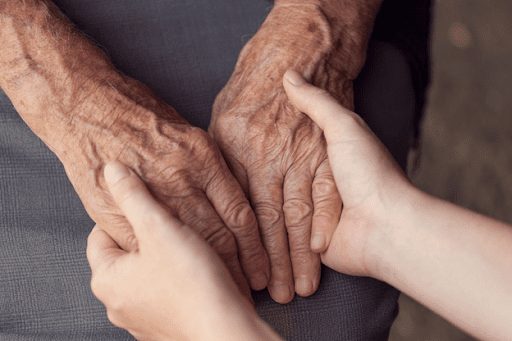The importance of older adult mental health has been increasingly evident in recent years. The decisions, limitations, dilemmas, and emotional experiences faced during the latter part of one’s life are all major contributors to the quality of life during this period.
But while the physical ailments many elderly individuals suffer from often get a great deal of attention, issues of mental health faced by this part of the population are often overlooked or chalked up to a normal response to growing old. As a result, the mental health concerns of the elderly can be left untreated, with many unable to receive the care and support they need to feel better.
It should also be mentioned that in addition to age-specific issues, the mental health challenges concerning the elderly include general problems that can disturb individuals from any and all age groups. This means that common mental health disorders such as anxiety, depression, and obsessive-compulsive disorder can all appear or continue later in life, and should be addressed regardless of the patient’s age.

As one’s body grows older, and they contend with adverse experiences that do not end in a permanent resolution, older adults increasingly face a greater number of disturbing situations, whose effects will continue to trouble them for the rest of their lives. Among these are chronic illnesses such as arthritis, which are not alleviated over time or through treatment. Over 80% of older adults face one or more types of chronic illnesses, causing them to continuously deal with the reality of their persistent symptoms.
In addition to physical illnesses, mental health issues can also cause serious concern during this period of life. An individual who, for example, has dealt with hoarding from an earlier period in their lives, may begin to exhibit increased symptom severity as they enter older age. Another individual may start to face the symptoms of an age-related mental health illness such as Alzheimer’s Disease, resulting in increased memory loss or impaired rational thinking. Even with treatment, these and other mental health disorders may continue to hinder one’s well-being, making them a continued presence in their lives.
Approximately 20% of individuals over the age of 55 will face some type of mental health concern, with anxiety, mood disorders such as depression and cognitive impairment considered to be the most common mental health issues among the elderly. Suicidality is another major concern among the elderly, with elderly men being at a significantly higher risk of attempting to take their own life, than the general population.
Depression among the elderly is a particularly tragic occurrence, as 80% of depression cases among the elderly have been found to be responsive to treatment. The statistics for this age group are concerning: 12.2% of adults 65 and older report to “rarely” or “never” receiving the social or emotional support they need. 7.7% of US adults aged 50 and older report currently suffering from depression, with 15.7% of this population reporting a lifetime battle with this disorder.
In addition to physical and mental health issues, constant sources of external distress, such as financial concerns, also often plague many older adults. Retirement-aged individuals, or those who have found they can no longer perform the demands of their job, often worry about not being able to care for their own needs or those of their spouse. Many times, being forced to recognize their new limitations can trigger a significant level of anxiety.
Frequent mental distress among the elderly can also bring about unhealthy daily habits. These include smoking addiction, avoiding fruits and vegetables, and not sustaining beneficial relationships. That said, only 6.5% of US adults 65 and older were found to have frequent mental distress associated with such habits, making them a relatively rare occurrence.
Additionally, going through emotionally painful experiences, such as the loss of a loved one, usually accumulates throughout one’s life: in the US alone, where some 2.5 million individuals die each year, research has shown that an average of five individuals per death are left behind to mourn their passing. The longer one’s life has been, the greater the chance of their having mourned someone dear to them, with older adults being at a higher risk of losing a spouse, neighbor or sibling.
Bereavement, and especially complicated grief, which continues beyond the first six months that follow a significant loss, is more likely to cause cognitive impairment among the elderly, particularly when it comes to attention span, verbal fluency and information processing. Since a bereaved individual’s cognitive ability has been linked to their mood, a decrease in cognitive abilities can be related to feelings of moroseness, hopelessness or major depression.

When it comes to respecting the patient’s wishes of older adults, dignity and freedom of choice are all too often overlooked. As a patient loses the ability to care for themselves and needs help carrying out daily activities or staying safe, it can be tempting to choose for them, even in situations they are still able to navigate themselves. Even a compassionate caregiver can become frustrated with a patient, or from the loss of another basic function that triggers the thought that they might be saying their goodbyes sooner than either had hoped.
But as understandable as wanting to efficiently take care of a loved one, it is often the therapist’s role to remind the patient and their family the importance of maintaining their dignity. Hospital situations that, for example, require a nurse’s assistance while getting dressed, may be much more acceptable to the patient if their assigned nurse was of the same gender as they are. Encouraging a patient to share their opinions when interviewing live-in caretakers can help them feel more in charge of the situation. Making sure they see a physician when a new medication causes them unpleasant side effects can remind them they are listened to. And respecting their final wishes whenever possible can help assure the last stretch of their life reflects how they wanted it to end. As difficult and heartbreaking as all this can be, caring for a loved one at the end of their life can also be a meaningful act of love, and a way to tell them how special your time together has been.